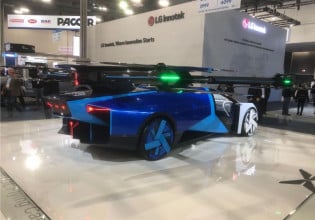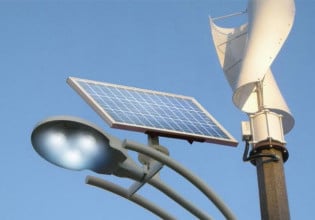GM Secures EV Hazard Detection With Start-Up Acquisition
General Motors makes a key acquisition to secure early hazard detection for its growing lineup of battery-powered electric vehicles.
General Motors recently acquired all the assets of Israeli battery software startup ALGOLiON in a move to prevent battery hazards in its growing electric vehicle portfolio. The company’s predictive algorithms identify markers for internal safety hazards in lithium-ion battery cells.
GM’s Chevrolet EV lineup includes the Bolt EV and EUV, the Equinox EV 3LT, the Blazer EV SS, and the Silverado EV. Image used courtesy of Chevrolet
The Michigan-based car giant touted ALGOLiON’s “sophisticated” software, which uses data streams from EV battery management systems to identify anomalies in cell performance. GM claims the platform can pick up minor changes to battery health weeks ahead of competing methods and without extra hardware or sensors.
Critically, the software detects battery hazards such as thermal runaway propagation events, in which defects or activities like overcharging or mishandling cause the battery to heat up and begin a chain reaction of rising temperatures leading to cell venting, smoke, or fire.
ALGOLiON’s staff will join the more than 850 employees at the GM Technical Center in Israel. According to a notice on its website, the company’s new registered name is ANIONZ Ltd. Terms of the transaction were not disclosed, though GM’s announcement mentioned it was headed by its new Technology Acceleration and Commercialization group, which identifies promising battery technologies and opportunities for investments, partnerships, and mergers and acquisitions.
GM’s Ultium battery platform. Image used courtesy of GM
GM is betting big on its Ultium battery platform, investing $35 billion in electric and autonomous vehicle projects from 2020 to 2025. The company has significantly ramped up its production capacity with several factory expansions, and it secured a steady supply of raw materials to advance its goal of selling 1 million EVs annually in North America and China by 2025.
GM Motivated to Prevent Battery Failures After Recalls
The acquisition comes after battery fire risks led GM to recall hundreds of thousands of units of its flagship electric hatchback Chevrolet Bolt model, first launched in 2017.
After discovering the battery packs could catch fire when routinely charged to full or near-full capacity, GM halted production in 2021 and recalled thousands of units. It later widened that net to all of the 140,000-plus Bolt EVs produced between 2017 and 2022. GM’s battery supplier, South Korea-based LG Chem, agreed to reimburse the company up to $1.9 billion for the recall and fix. The two cited defects were a torn anode tab and a folded separator, which could cause short circuits in the battery cells.
The U.S. National Highway Traffic Safety Administration (NHTSA) closed its investigation in February 2022 after reviewing complaints that the vehicles caught fire under the seating area while parked. The thermal events occurred during or toward the end of the battery module charging cycle. According to NHTSA records, 24 fires/crashes have been tied to the defect, with just one injury and no deaths. Production has since restarted.
The Bolt isn’t GM’s only EV with a history of battery problems. Last year, the company paused production on its much-anticipated HUMMER EV pickup and SUV line to fix an issue with water breaking through the seals in its battery packs. Then, in May 2023, GM recalled some 2022 Hummer and 2023 LYRIQ vehicles because of improperly positioned or welded connections in the high-voltage battery pack that could prompt power drive losses.
Despite high demand, HUMMER EV sales have slowed considerably. GM’s latest U.S.-specific sales report shows deliveries are down 86.8% year-over-year, totaling 49 in the first half of 2023 compared to 371 last year. Part of that story is because GM paused production in late-2022 to upgrade its Factory ZERO plant in Michigan, retooling the facility for EV production in preparation for Chevrolet Silverado EV and GMC Sierra EV launches.
Latest GM EV Sales
GM’s second-quarter U.S. sales figures clock a 19% jump year-over-year with 691,978 deliveries, of which 15,652 were EVs. From January to June 2023, the company sold nearly 1.3 million vehicles in the U.S., up 18% from the first half of last year. More than 36,000 of those sales were EVs.
All four of its brands achieved decent growth in the second quarter. Among Chevrolet cars, the Bolt EV and Bolt EUV accounted for more than 13,900 deliveries, up 101% year-over-year. Other high-performing EV models include the Cadillac LYRIQ luxury crossover SUV (up 39% from the first quarter, with over 1,300 deliveries) and vehicles in GM’s Envolve fleet-targeted portfolio, which grew 34% in Q2.
In the second half of this year, GM plans to launch the Cadillac CELESTIQ EV and the Chevrolet Silverado, Blazer EV, and Equinox EVs. It will also reveal the Cadillac ESCALADE IQ EV in August.








